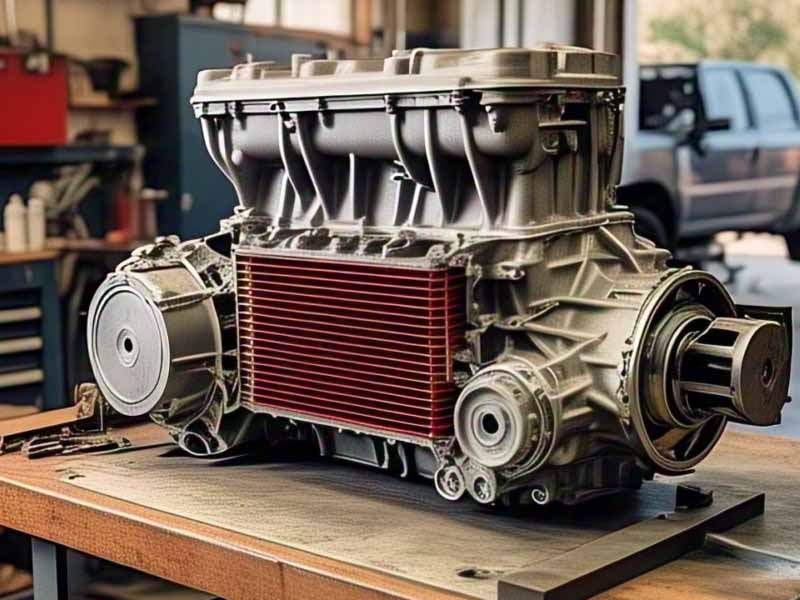
Dieselspecialists – Preventing diesel engine overheating is essential to maintaining engine efficiency and longevity. Diesel engines produce significant heat during operation, and without proper cooling, they can quickly overheat. This overheating can lead to severe damage, such as warped engine heads, cracked blocks, or even complete engine failure.
Several factors contribute to diesel engine overheating, including low coolant levels, a malfunctioning radiator, clogged cooling passages, and excessive engine load. Regular inspections and maintenance are crucial to identifying potential issues before they escalate into major problems.
Routine maintenance plays a critical role in preventing diesel engine overheating. One of the most important steps is checking coolant levels regularly and ensuring that the cooling system functions efficiently. Using the manufacturer-recommended coolant and replacing it at the specified intervals helps prevent corrosion and blockages in the system.
“Sleekest Street Tracker: Colt Wrangler Zero XU”
Additionally, inspecting the radiator for leaks or obstructions ensures proper airflow and cooling efficiency. A clogged radiator can restrict coolant circulation, leading to overheating. Cleaning or replacing air filters is another essential step, as restricted airflow can force the engine to work harder, generating more heat.
Regular oil changes also contribute to engine cooling by reducing friction and maintaining smooth operation. Poor-quality or degraded oil can increase engine stress, causing it to overheat more easily. Ensuring that the thermostat and water pump are in good condition further enhances the cooling system’s performance.
In addition to routine maintenance, following best driving practices helps in preventing diesel engine overheating. Avoiding excessive idling and reducing heavy towing loads can minimize engine strain. Overloading a vehicle forces the engine to work harder, generating additional heat that can overwhelm the cooling system.
Monitoring the engine temperature gauge is essential while driving, as it provides early warnings of potential overheating. If the temperature rises above normal levels, taking immediate action—such as stopping the vehicle and allowing it to cool down—can prevent severe damage.
By implementing regular maintenance and mindful driving habits, diesel engine owners can significantly reduce the risk of overheating. Preventing diesel engine overheating not only extends the engine’s lifespan but also ensures optimal performance and efficiency for years to come.
“Hillsborough Castle Showcases Royal Fashion”
[SITE_NAME] - identifikasi kerusakan mesin diesel sangat penting bagi pemilik kendaraan atau operator mesin untuk mencegah kerusakan berlanjut yang merugikan.…
[SITE_NAME] - off highway diesel engine technology is evolving rapidly to meet stringent emissions standards and increasing demands for fuel…
[SITE_NAME] - alternative fuels changing diesel engines are accelerating the evolution of transportation technology as industries shift toward cleaner and…
Diesel Specialists | Expert Engine Solutions for Diesel, Gasoline & More - Diesel particulate filter failures on Komatsu heavy equipment…
Diesel Specialists | Expert Engine Solutions for Diesel, Gasoline & More - A common rail diesel engine significantly enhances fuel…
Diesel Specialists | Expert Engine Solutions for Diesel, Gasoline & More - heavy duty diesel engines different characteristics set them…